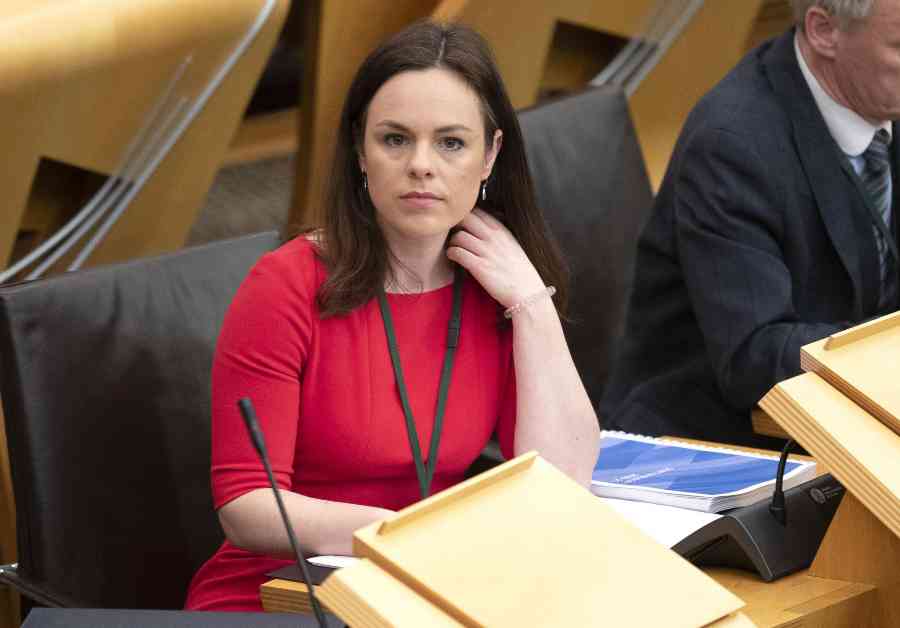Kate Forbes, the Deputy First Minister of Scotland, recently criticized the early decisions of the new UK Labour government for lacking hope. She defended universal benefits and emphasized the importance of measures to tackle poverty, particularly in times of tight budgets.
At an event organized by the Child Poverty Action Group in Scotland, Forbes spoke passionately about the need to address poverty as a form of preventative spending that ultimately benefits the economy as a whole. She highlighted the Scottish Government’s commitment to eradicating child poverty and outlined their efforts to achieve this goal.
Forbes expressed pride in securing funding for the Scottish Child Payment during her tenure as finance secretary. Despite facing difficult budget constraints, she emphasized the government’s choice to prioritize funding for this initiative as a means of eradicating child poverty in Scotland.
The Deputy First Minister made a strong case for universal benefits, citing their ability to reduce stigma and provide essential support to those in need. She stressed the importance of empowering individuals to make decisions without the burden of proving their eligibility for assistance.
However, Forbes also criticized the new UK Labour government for its early decisions, particularly regarding the two-child tax credit cap. She expressed disappointment in their response to the cap and questioned the government’s commitment to addressing poverty effectively.
In her remarks, Forbes underscored the moral imperative of tackling poverty, highlighting the impact it has on children and families. She shared personal anecdotes about her sister’s experiences as a primary teacher and her own journey as a new mother, illustrating the harsh realities faced by those living in poverty.
Forbes emphasized the importance of interventions like the Scottish Child Payment in supporting the justice system, healthcare, and the economy. She noted that providing financial assistance to families not only puts more money in their pockets but also empowers them to make decisions and reduces the stigma associated with seeking help.
As the Deputy First Minister, Forbes has been a vocal advocate for policies that prioritize the well-being of children and families in Scotland. She has consistently championed initiatives aimed at reducing poverty and addressing the root causes of inequality in society.
Universal Benefits and Tackling Poverty
Forbes’s defense of universal benefits underscores the importance of providing support to all individuals in need, regardless of their circumstances. By advocating for policies that reduce stigma and empower individuals to access essential services, she highlights the positive impact that such measures can have on society as a whole.
The Deputy First Minister’s commitment to tackling poverty as a form of preventative spending aligns with the broader goal of building a more equitable and inclusive society. By investing in initiatives that support vulnerable populations, governments can create a more resilient and prosperous community for all.
The Impact of Poverty on Children and Families
Forbes’s personal anecdotes about her sister’s experiences as a teacher and her own journey as a mother shed light on the harsh realities faced by children and families living in poverty. The stories she shared underscore the urgent need for comprehensive interventions that address the root causes of poverty and provide meaningful support to those in need.
By highlighting the challenges faced by individuals living in poverty, Forbes brings attention to the systemic issues that perpetuate inequality and disadvantage in society. Her advocacy for policies that prioritize the well-being of children and families reflects a deep commitment to creating a more just and equitable society for all.
The Role of Government in Addressing Poverty
Forbes’s criticism of the new UK Labour government’s early decisions on poverty-related issues speaks to the need for effective and compassionate leadership in addressing social inequality. By highlighting the inadequacies of certain policies and calling for more robust measures to tackle poverty, she exemplifies the importance of holding governments accountable for their actions.
As the Deputy First Minister of Scotland, Forbes has been a vocal advocate for policies that prioritize the needs of vulnerable populations and promote social justice. Her dedication to eradicating child poverty and addressing the root causes of inequality reflects a commitment to building a more inclusive and compassionate society for all.
In conclusion, Kate Forbes’s criticism of the new UK Labour government’s decisions on poverty-related issues underscores the urgent need for comprehensive and compassionate policies that prioritize the well-being of children and families. By advocating for universal benefits and tackling poverty as a form of preventative spending, she highlights the positive impact that such measures can have on society as a whole. As a leader in the Scottish government, Forbes’s commitment to addressing poverty and inequality reflects a deep sense of moral responsibility and a dedication to creating a more just and equitable society for all.















